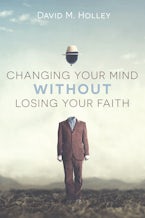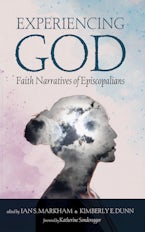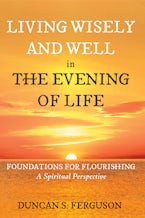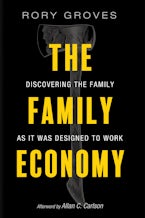This book is written for people who are tempted to leave the church because the message they have been hearing has come to seem intellectually unacceptable, morally objectionable, or spiritually deadening, maybe even all three. Often, these people see no alternative to the version of Christian faith that they now find difficult to accept. They have been told that rejecting anything they have been taught means ceasing to be a Christian.
What they have been told is wrong. But seeing new possibilities means reconsidering assumptions that are often taken for granted, and it can be difficult to imagine on your own a form of faith different from what you are used to. This book provides some help. It can be thought of as a guide for those who see the need to let go of some of what they have been taught, but don't know how to replace it with something better.
Rethinking your faith can be scary. But giving up on what is unbelievable can help to clear the way for the kind of faith that is more believable and ultimately more satisfying. Changing your mind can be a way of saving your faith.
David M. Holley taught philosophy for over forty years at universities in Kansas, Arizona, and Mississippi. His books include Meaning and Mystery: What It Means to Believe in God (2010), and he has published numerous articles in professional journals on topics in philosophy of religion and ethics. He is currently retired and lives in Texas with his wife Joyce. David and Joyce are members of Peace of Christ Church in Round Rock, Texas.
“This book is a courageous attempt to show that a contemporary person who is morally sensitive and scientifically knowledgeable can hold and live out a biblical form of Christian faith. . . . Holley writes both for Christians who have doubts and nonbelievers who find themselves unable to arrive at any kind of faith. The book itself models the view of faith Holley develops: faith faces critical questions honestly and humbly but can arrive at a view of God and the world that inspires hope and makes love central to human existence.”
—C. Stephen Evans, Professor of Philosophy and Humanities, Baylor University
“A great many Christians, and some former Christians, are in need of what David Holley has to say. They have been taught the Christian faith as a tight package of beliefs, so that questioning any one belief will cause the whole package to fall apart. Holley both explains and demonstrates how thinking hard, and even questioning some parts of the package, can contribute to a faith that continues to grow and become stronger. Hope this works for you!”
—William Hasker, former Editor, Faith and Philosophy











